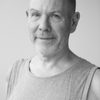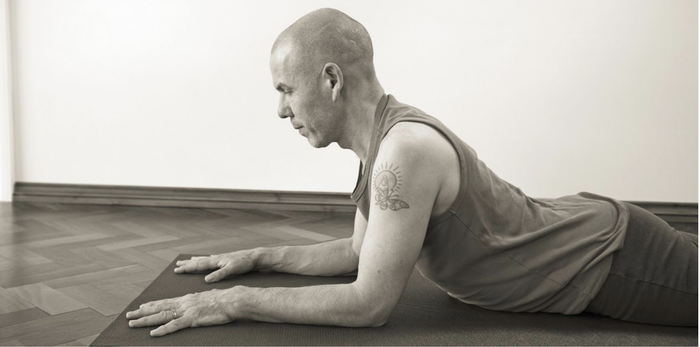I first met Sarah Powers in June 2002. My friend Jeff Phenix encouraged me to attend Sarah’s weekend Yin yoga workshop at Triyoga in north London.
More than 20 years later, I still attend events that Sarah teaches. The next year I started teaching Yin yoga.
There are plenty of people who have been coming to my classes for more than 10 years; some even longer. Such depth of relationship can be profound. Seeing people through the ups and downs of life: heartbreaks, miseries, births, miscarriages, happiness, weddings, serious illness, death – and more. This depth of such relationships is significantly supported by in-person physical proximity. This way of connecting can be deeper than more removed forms (such as online relationships, such as practising along to recorded material). Within this proximity, there is both immediacy and a greater complexity of the relationship.
I did Sarah’s ten-day Yin yoga training in January 2004 and repeated this same course twice more in the next three years. I first went to Vancouver to do Bernie Clark’s week Yin yoga training in 2016 and repeated this same course twice more in the next three years. Repeating can be a great way of learning: getting embedded in ideas and practice. The same is true for books – re-reading is an excellent approach.
Several people have attended the Yin yoga courses that I teach (both the five-day and the nine-day versions) more than once. Repeat, repeat, repeat…and perhaps slowly over time some of this stuff might make more sense. Revisiting practices and becoming more familiar with ideas can potentially be a great way to deepen understanding.
Why would we only listen to a piece of music that we love just once? Many songs I have listened to many times.
Some books I have read and re-read. Teachings can be repeated again and again. Repetition is a great learning process.
This can be called the theory of saturation teaching: basically, material is repeated and repeated as a way of helping us to learn. We then could perhaps experience the material more deeply; less shallow and superficial.
Many things promise quick fixes; there are teachers who publicly state that they can – as one example – teach yoga teachers how to teach Yin yoga in one day. For myself, such claims are lacking in depth.
To grasp these terms of yin and yang, we need to understand diversity within unity. That life is a multiplicity of movements in many different dimensions and directions – all at the same time.
Yin might be described as the broader picture while yang could perhaps be seen as a narrower focus. Yin as relaxed ease and yang as purposeful drive; yin as a bird’s eye view and yang as the fly’s eye view. Yin is more generalising, yang is more specialising; perhaps yin could be valleys and yang might be more mountains. Yin as circles and circularity, yang as lines and linear; yin as blurred boundaries and fuzzy fields, yang as distinct forms and clear borders. Perhaps yin could be perceived as space and yang perceived as time. Yin is more that critical consciousness and perhaps yang is more the circles of certainty; yin is more democratic and yang is more hierarchical. Maybe in terms of weather, yin is cloud and rain while yang is thunder and lightening.
Excellent advice for practitioners is to be yin during a Yin practice; and excellent advice for teachers is to make sure they do not become too yin when teaching a Yin practice. This could connect to an approach that emphasises the quality of permission (often I call Yin yoga “a permissive practice”) while acknowledging the need for boundaries (to avoid becoming a free for all without structure). As Yin flows into the yoga mainstreams, hopefully it will maintain its counter-cultural ethos: the slowing down, the softening, the focus on inner tones rather than outward appearances.
In this balancing of different qualities, perhaps we can get closer to realising a highly positive approach is combining observation, engagement and compassion. Necessary tools for transformation are knowing roots, questioning motivations and being aware of inner experiences.


